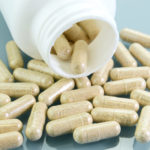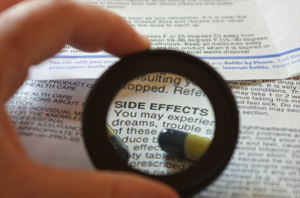There is so much hype online both ways as to the health benefits of coconut oil. Is it good for you? Is it bad for you? Honestly given the amount of debate its hard to know what to think.
Coconut oil is considered by many to be a “miracle oil” with a host of dietary benefits, and those who are pro coconut oil believe it boosts metabolism, improves digestion and immune health, supports hormone production and improves mental focus. Others say that the lauric acid content and medium-chain triglycerides (MCT) it contains can help with weight loss.
What’s the verdict?
A science advisory was recently issued by The American Heart Association warning people not to ingest coconut oil due to its high levels of saturated fat. It warned that saturated fat from all sources raises LDL, or “bad” cholesterol levels, which can contribute to the buildup and hardening of fatty plaque in arteries and lead to heart attacks and strokes.
It was noted that coconut oil holds 82% saturated fat; by comparison, canola oil contains only 7% saturated fat. One tablespoon of coconut oil contains 11 grams of unsaturated fat, just 2 grams short of the heart association’s recommended daily limit.
The warning triggered a massive outcry online, with some challenging nutritional norms by insisting that cardiovascular disease is caused by inflammation and oxidized cholesterol from sugars, carbohydrates, and vegetable oils. Others claimed the recommendation was tied to pressure from pharmaceutical and agricultural corporations, as well as multi-national food businesses collectively known as “Big Food.”
While a majority of Americans believe coconut oil is a healthy food, medical experts agree that there’s simply no evidence of long-term health benefits associated coconut oil. In fact, it’s calorie-dense and holds more saturated fat than butter, beef tallow, and lard, according to one weight-loss expert.
When cooking with oils, it’s important to pick the healthiest option and consume fatty foods in moderation, as part of a healthy lifestyle that includes regular exercise.
Tampa Cardiovascular Associates, with offices in Tampa and Wesley Chapel, is ready to help you make dietary and lifestyle changes to improve your cardiovascular health. For a free screening and consultation, visit our website or call 813-975-2800.


 Gallbladder pain is unmistakable if you have ever experienced it. It can range from a dull ache to a sharper debilitating doubling over kind of pain that seems to go straight through your core.
Gallbladder pain is unmistakable if you have ever experienced it. It can range from a dull ache to a sharper debilitating doubling over kind of pain that seems to go straight through your core.
 Do you have anxiety but are reluctant to medicate due to the enormous list of possible side effects? We don’t blame you one bit!
Do you have anxiety but are reluctant to medicate due to the enormous list of possible side effects? We don’t blame you one bit!
 For those familiar with chiropractors already, they know from their own personal experience that chiropractic simply works. As for those who haves yet to experience chiropractic there seem to be a few rumors floating around out there. Today we would like to try and clear the air as to fact vs. myth.
For those familiar with chiropractors already, they know from their own personal experience that chiropractic simply works. As for those who haves yet to experience chiropractic there seem to be a few rumors floating around out there. Today we would like to try and clear the air as to fact vs. myth.
 There is nothing quite as alarming as suddenly feeling that urge to run to the rest room at the most inopportune time. Especially if you are nowhere near a bathroom.
There is nothing quite as alarming as suddenly feeling that urge to run to the rest room at the most inopportune time. Especially if you are nowhere near a bathroom.

 When you try and lay down at night to fall asleep do your legs start moving and twitching involuntarily? This is what is known as Restless Leg Syndrome. It can range from uncomfortable to incredibly annoying, even painful and lead to insomnia, which in turn can bring about other lack of sleep related health problems.
When you try and lay down at night to fall asleep do your legs start moving and twitching involuntarily? This is what is known as Restless Leg Syndrome. It can range from uncomfortable to incredibly annoying, even painful and lead to insomnia, which in turn can bring about other lack of sleep related health problems.
 TMJ can be caused by your genetics, trauma to the jaw or even arthritis. Nocturnal tooth grinding and clenching can also play a role, though tooth grinders don’t always develop TMJ.
TMJ can be caused by your genetics, trauma to the jaw or even arthritis. Nocturnal tooth grinding and clenching can also play a role, though tooth grinders don’t always develop TMJ.

 Oddly, the answer may be “yes”.
Oddly, the answer may be “yes”.